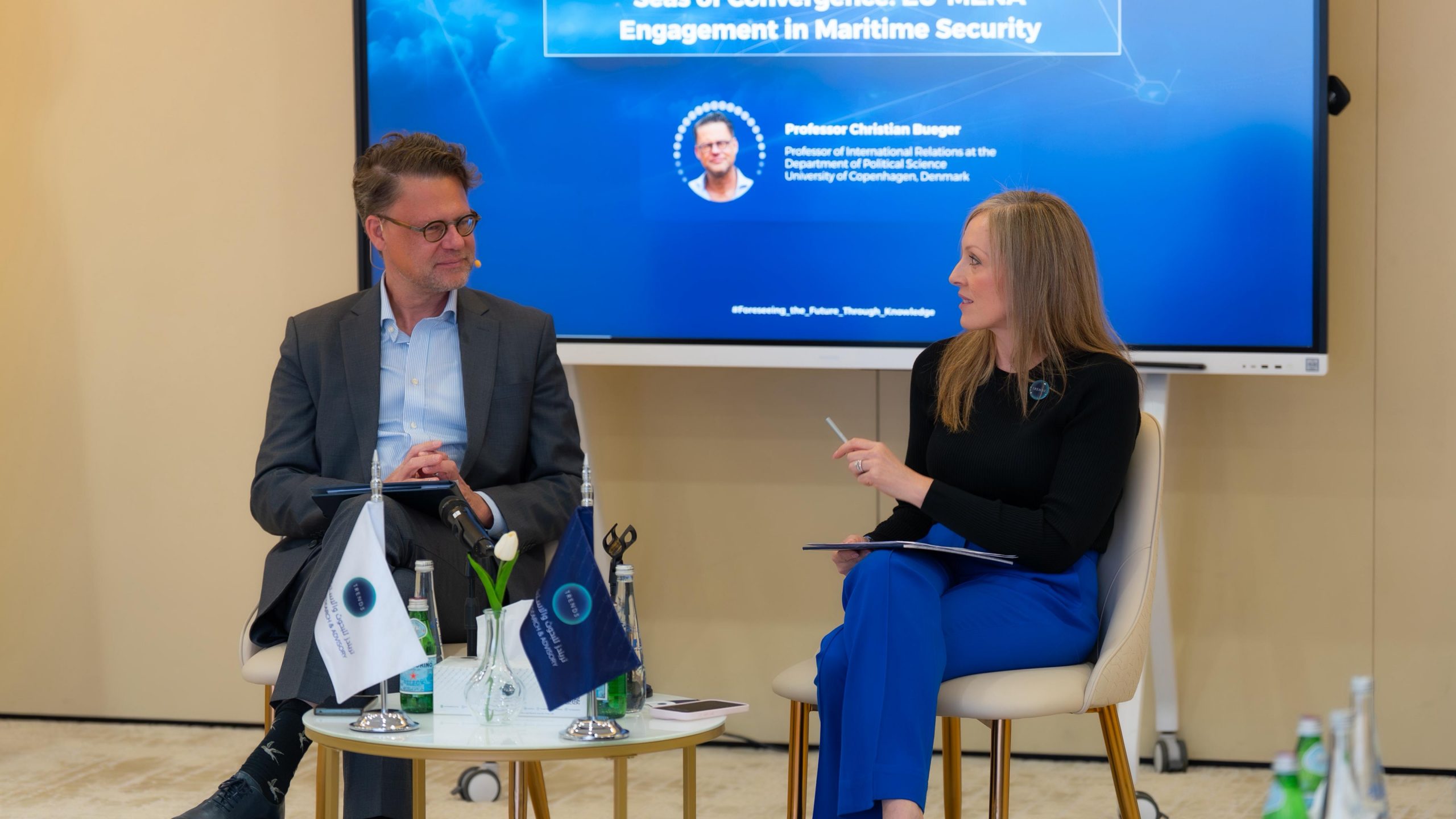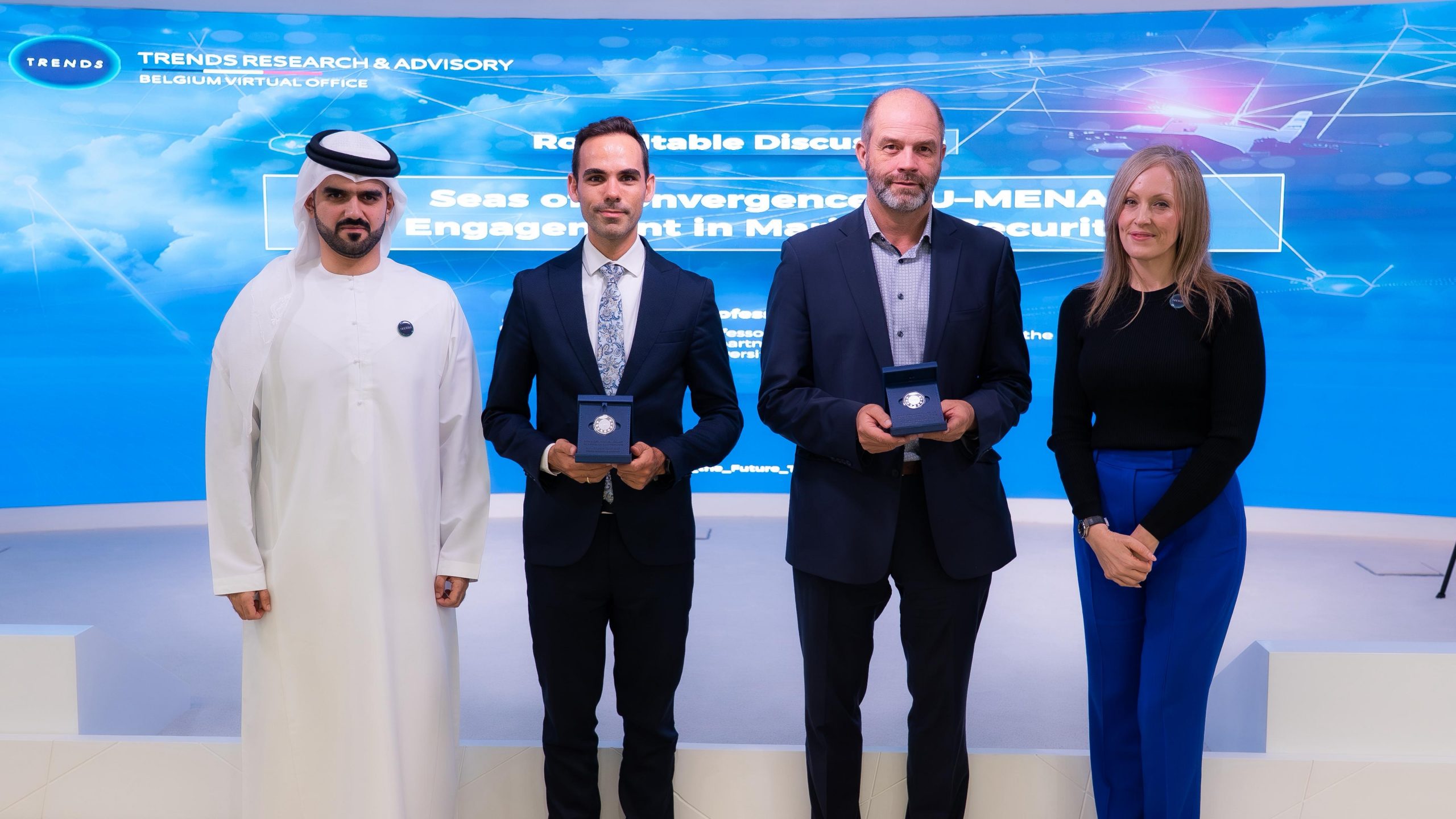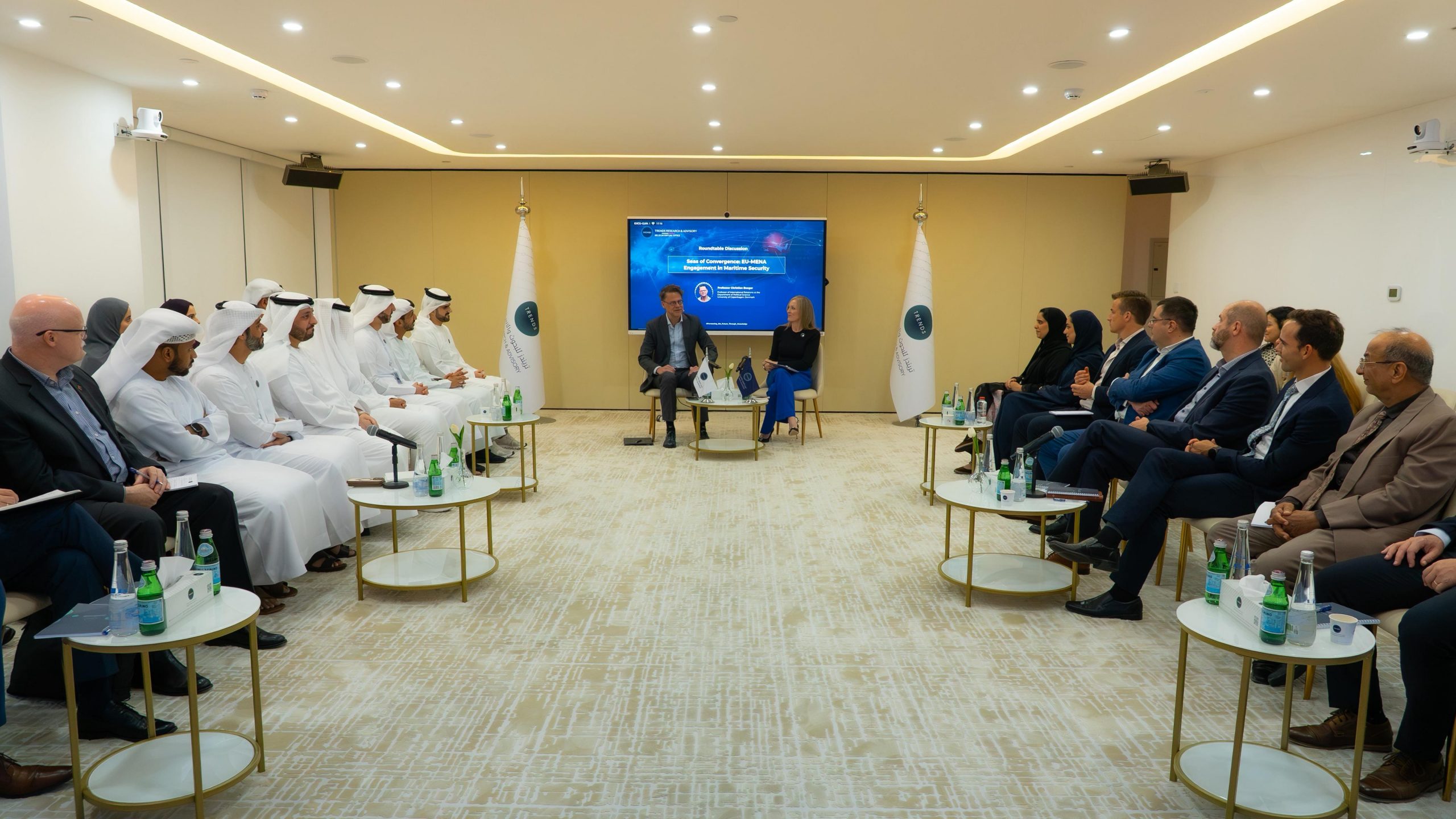TRENDS Research & Advisory, through its office in Belgium, organized a lecture, Maritime security: Challenges and shifts in the global landscape. The lecture was delivered by Christian Bueger, Professor of International Relations at the University of Copenhagen, member of the United Nations Institute for Disarmament Research (UNIDIR), and Leader of the Ocean Infrastructure Research Group.
Several diplomats and experts, including representatives from the embassies of Belgium, Canada, and Serbia, attended the lecture. Among the attendees were Colonel Marc Bouthé, Defense Attaché – Embassy of Belgium; Joren Selleslaghs, Deputy Head of Mission – Embassy of Belgium; John Pumphrey, Defense Attaché – Embassy of Canada; Lieutenant Colonel James Videvich, Deputy Head of Mission – Embassy of Canada; and Colonel Ivica Milanović, Defense Attaché – Embassy of Serbia.

During his lecture, Prof. Bueger presented insights from his recent study, Seas of Convergence: EU-GCC Maritime Security Cooperation in the Western Indian Ocean, published by TRENDS in English. The study explores ways for the European Union and the Gulf Cooperation Council to cooperate in strengthening maritime security across the Western Indian Ocean.
Prof. Bueger explained that regional organizations have become key players in global maritime security architecture, enabling countries to pool resources and expertise to protect territorial waters and critical sea lanes better. He highlighted that EU-GCC cooperation represents a promising model for regional integration in this domain.

The study also analyzes the complex institutional landscape governing maritime security in the Western Indian Ocean. It notes that the multitude of overlapping frameworks and mechanisms – such as the Combined Maritime Forces (CMF), the Djibouti Code of Conduct (DCoC), and the Shared Awareness and Deconfliction (SHADE) mechanism – has created coordination challenges, while at the same time offering opportunities to develop what Bueger describes as adaptive maritime governance, based on diversity and complementarity rather than strict centralization.

Prof. Bueger further pointed out that the region stretching from the Red Sea and the Arabian Gulf to the East African coast is witnessing a rise in maritime threats, including piracy, smuggling, irregular migration, and attacks on vessels, as well as environmental risks and challenges related to underwater infrastructure.
The lecture concluded with an engaging discussion on the importance of enhancing international cooperation, sharing expertise and intelligence in maritime security, and aligning efforts among regional organizations to ensure the safety and sustainability of global maritime routes.



